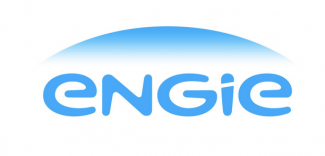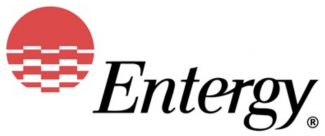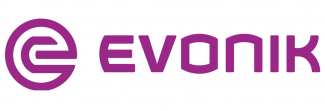Gulliver
Exposing corporate wrongdoing
Type the name of a company in the search box below. To conduct a wider search, please pick from one (or more) of the drop down menus below.
Électricité de France (EDF Group)
Électricité de France (EDF Group) is a state-owned energy company that was renationalized in 2023 after a partial privatization in 2005. Nuclear power made up 76 percent of its 2022 energy production and it was one of the three largest gas emitters in the European Union in 2021. The company is currently building the world’s largest nuclear plant in India despite widespread community opposition. The safety of its nuclear plants has often been a topic of controversy as a result of reported leaks, sealing failures, and insufficient monitoring of subcontractors. In order to make the burial of nuclear waste more “socially acceptable” in Meuse and Haute-Marne in eastern France, EDF reportedly spent €340 million (US$363 million).
The company has also been heavily criticized over the impact of the hydroelectric dams that it has built such as the Nam Theun II project on a tributary of the Mekong River in Laos, and for a proposed dam at Mphanda Nkuwa on the Zambezi river in Mozambique. Communities in Brazil successfully defeated EDF's proposed São Luiz do Tapajós dam in 2016.
Enbridge
Enbridge operates the world's longest crude oil and liquids pipeline system, with over 150,000 kilometers in pipelines in North America. It has come under repeated criticism by environmental and Indigenous groups for building its pipelines through tribal lands. Most notable are the Line 3 and Line 5 pipelines, which have been the subject of mass protests, including blockades, civil disobedience, and shutdowns. The company was found to have paid off Minnesota police to surveil and arrest protesters during 2021 protests against the company.
Line 5, almost 70 years old, runs through the Straits of Mackinac, which connect Lake Michigan to Lake Huron. A 2016 report to the U.S. Congress showed that the pipeline was missing bottom anchors that should hold it in place in 16 major locations. Engineering experts say that Line 5 is ‘one peak current event’ away from failure that could contaminate over 1,100 kilometers of the shoreline of the Great Lakes.
Endesa
Electric utility Endesa, the largest power provider in Spain, was originally owned by the state. Privatization began in 1988, as a condition imposed by the European Union for Spain to become a member state. Today it is owned by Enel, another former state-owned electric utility based in Rome, Italy. Endesa has often been criticized for its role in Spain’s high levels of energy poverty where some 11 percent of people cannot afford to heat their homes properly, one of the highest levels in Europe. Endesa was fined, alongside Naturgy, for manipulating electricity prices between October 2016 and January 2017, coinciding with a peak in demand due to cold weather.
Endesa’s dam building in South America has caused devastating social and environmental harm such as at São Luiz do Tapajós, Brazil; the Bio Bio Watershed in Chile; El Quimbo in Colombia; El Chaparral in El Salvador; and Palo Viejo in Guatemala. The company has also become a target of protests by environmental groups, fish workers and residents over the social conflict and environmental damage caused by the Bocamina Thermoelectric Plant, in southern Chile.
ENGIE
Electric utility ENGIE was created out of the privatization of various Belgian and French public utilities. It operates major nuclear power plants in Belgium that routinely report 'unforeseen' problems. The plants were supposed to be phased out in 2025, but were extended for 10 years as a result of the war in Ukraine.
The company used to have a number of coal power plants in Germany and the Netherlands which it has sold to Riverstone Holdings in order to exit fossil fuels, but the plants are still being operated as normal. It has also sold off coal plants in Brazil and Morocco. In Chile, ENGIE is converting its Andina and Hornitos coal plants to wood burning, but activists note that this action is simply replacing one problem with another.
ENGIE built the Jirau dam on the Madeira River in the state of Rondônia, close to Brazil's border with Bolivia. The dam was blamed for deforestation, loss of fisheries and catastrophic floods in 2014. In Morocco, ENGIE is building a desalinization plant in the city of Dakhla as well as the Foum El Oued wind farm and the Aftissat wind farms in occupied Western Sahara territory. In Mexico, Engie has been accused of land and resource grabbing for a solar project in Calpulalpan, Tlaxcala, Mexico.
Entergy Corp.
Entergy is an electrical utility company that serves Arkansas, Louisiana, Mississippi, and Texas. Founded in 1913, it currently operates six nuclear power plants and several other energy plants in ‘Cancer Alley,' an 85 mile stretch of the Mississippi river in Louisiana with over 150 toxic petrochemical plants. Entergy is infamous for reporting billions in profits while charging customers and the government for cost overruns at its nuclear power plants and for storm damage from numerous hurricanes such as Katrina in 2006, Gustav in 2008 and Ida in 2021. For example, Entergy reported a $923 million profit in 2005, but applied for $592 million in federal subsidies to pay for storm damage from Hurricane Katrina in 2006.
Evonik Industries
Evonik was originally the chemical manufacturing division of Ruhrkohle AG, a coal company headquartered in Essen, North Rhine-Westphalia, Germany, that merged with Degussa AG, a company that refined precious metals and manufactured pesticides. It was renamed and converted into a new company in 2007 but it is still majority controlled by the same shareholders that own RAG Aktiengesellschaft, the coal company. Degesch, a Degussa subsidiary, was one of the main manufacturers of Zyklon B, a chemical used by the Nazis to kill millions in the gas chambers. Degussa was also in charge of processing the gold dental fillings of those who were killed.





